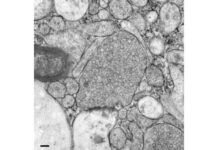The complicated effects of alcohol use on arsenic bioavailability and tissue accumulation are clarified by a study. published in Eco-Environment & Health, the study talks about how alcohol alters intestinal barriers and gut bacteria, which affects how arsenic is absorbed and dispersed throughout the body.
Researchers examined the effects of alcohol on the body’s metabolism of arsenic, a common environmental contaminant. Mice were given daily doses of Chinese liquor and diets enhanced with arsenate to mimic human alcohol consumption.
Alcohol reduced the accumulation of arsenic in vital organs while increasing its absorption in the gut. Moreover, alcohol damages intestinal barriers and alters gut microbiota, which increases the amount of arsenic that enters the bloodstream and causes this unanticipated impact.
Furthermore, it also decreased antidiuretic hormone levels and enhanced kidney filtration. It resulted in more arsenic being eliminated through urine. Therefore, alcohol lessens the potential danger of arsenic by speeding up its removal from the body.
This study offers a fresh perspective on alcohol’s impact on arsenic toxicity by illuminating the complex relationship between everyday substances and their unanticipated health effects.
Dr. Hongbo Li, the corresponding author said
Given the widespread exposure to both substances, it’s vital to comprehend how they interact within the body to better predict and mitigate health risks
According to the findings, drinking alcohol may increase the absorption of arsenic but also improves its excretion from the body, which may reduce tissue accumulation and some toxicity risks. This knowledge, which provides a thorough understanding of the risk factors and their interconnections, is particularly relevant for groups exposed to both alcohol and arsenic.




